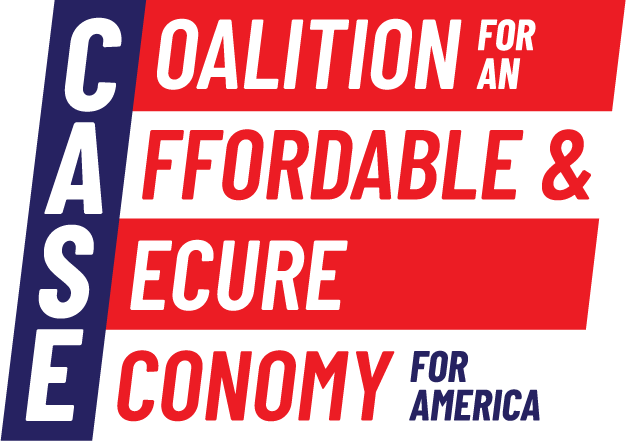Market Uncertainty & Inflation Drive GOP Away From Tariffs
As CBS News reports new survey data finds poll respondents “say[ing] the Trump administration is focused too much on tariffs, and by contrast, is not focused enough on lowering prices,” Republican lawmakers are increasingly alarmed over the economic turmoil that could follow a new wave of tariffs.
While President Trump has framed his plan as a “Liberation Day” for the American economy, concerns are mounting that additional tariffs could drive up costs for consumers, disrupt key industries and rattle financial markets.
Over the weekend, Goldman Sachs raised its 12-month recession probability to 35%, up from 20%, citing weaker economic conditions and escalating trade tensions while the Federal Reserve Bank of Atlanta forecasts a contraction in the first quarter with minimal GDP growth.
A survey released this past week by the Richmond Fed, the Atlanta Fed, and Duke University, found that companies that don’t import from Canada, Mexico and China expect to raise prices 2.9% this year. But companies that rely heavily on these tariffed countries plan to raise prices 5.1%.
GOP lawmakers and business groups are quietly hoping to limit the scope of these tariffs and push for exclusions in their states, fearing tariffs will further destabilize local economies.
According to projections from economists at Goldman Sachs, this tariff increase will raise consumer prices while unemployment is expected to climb to 4.5% by the end of the year.
President Trump has dismissed concerns about rising costs due to tariffs for average Americans, stating “I couldn’t care less if carmakers raised prices as a result of the tariffs…”
With such economic uncertainty, Americans are left wondering if their elected representatives will make the case for pro-growth economic policies, cutting unnecessary regulations and harnessing energy capabilities in order to positively impact households’ budgets and drive down prices.
Read what Republicans and economic leaders are saying:
Representative Don Bacon (R-NE): “‘In the end, consumers pay more. And so it’s going to raise costs.’ Ultimately, Bacon said he views Trump’s reciprocal tariffs as a ‘negotiating’ tactic – ‘but even then, look at the ruckus all this causes. Our stock market doesn’t handle this stuff too well.’” (POLITICO, 3/31/25)
Susan Collins, President, Federal Reserve Bank of Boston: “It looks inevitable that tariffs are going to increase inflation in the near term. My kind of modal outlook would be that that could be short-lived. There are risks around that, and depending on how things unfold, it may be more persistent and a larger increase.” (Fortune, 3/28/25)
Ellen Zentner, Chief Economic Strategist, Morgan Stanley Wealth Management: “It looks like a ‘wait-and-see’ Fed still has more waiting to do. Today’s higher-than-expected inflation reading wasn’t exceptionally hot, but it isn’t going to speed up the Fed’s timeline for cutting interest rates, especially given the uncertainty surrounding tariffs.” (CNBC, 3/28/25)
Senator Jerry Moran (R-KS): “Tariffs in Kansas often are very harmful to agricultural producers, farmers and ranchers. And we’re often the retaliatory target by those we impose tariffs against.” (POLITICO, 3/31/25)
- Moran: “In the last Trump administration, we were successful in getting the Department of Commerce the opportunity to have exclusions. And we’ll pursue that again. Our farmers are stretched. This is one of the worst, certainly maybe the worst times I’ve seen, in agriculture … We need every market.” (POLITICO, 3/31/25)
Senator Ron Johnson (R-WI): “They [tariffs] have a purpose, but they can do some great harm as well.” (The Washington Post, 3/29/25)
Stephen Moore, Co-founder, Committee to Unleash Prosperity, and Former Trump Economic Advisor: “We’re trying to steer Trump away from some of these protectionist tariffs – the steel and aluminum tariffs, for example, are not very effective. If you want to save manufacturing jobs, this is not the way to do it. There’s danger all the tariff stuff is drowning out the tax stuff.” (The Washington Post, 3/29/25)
###

